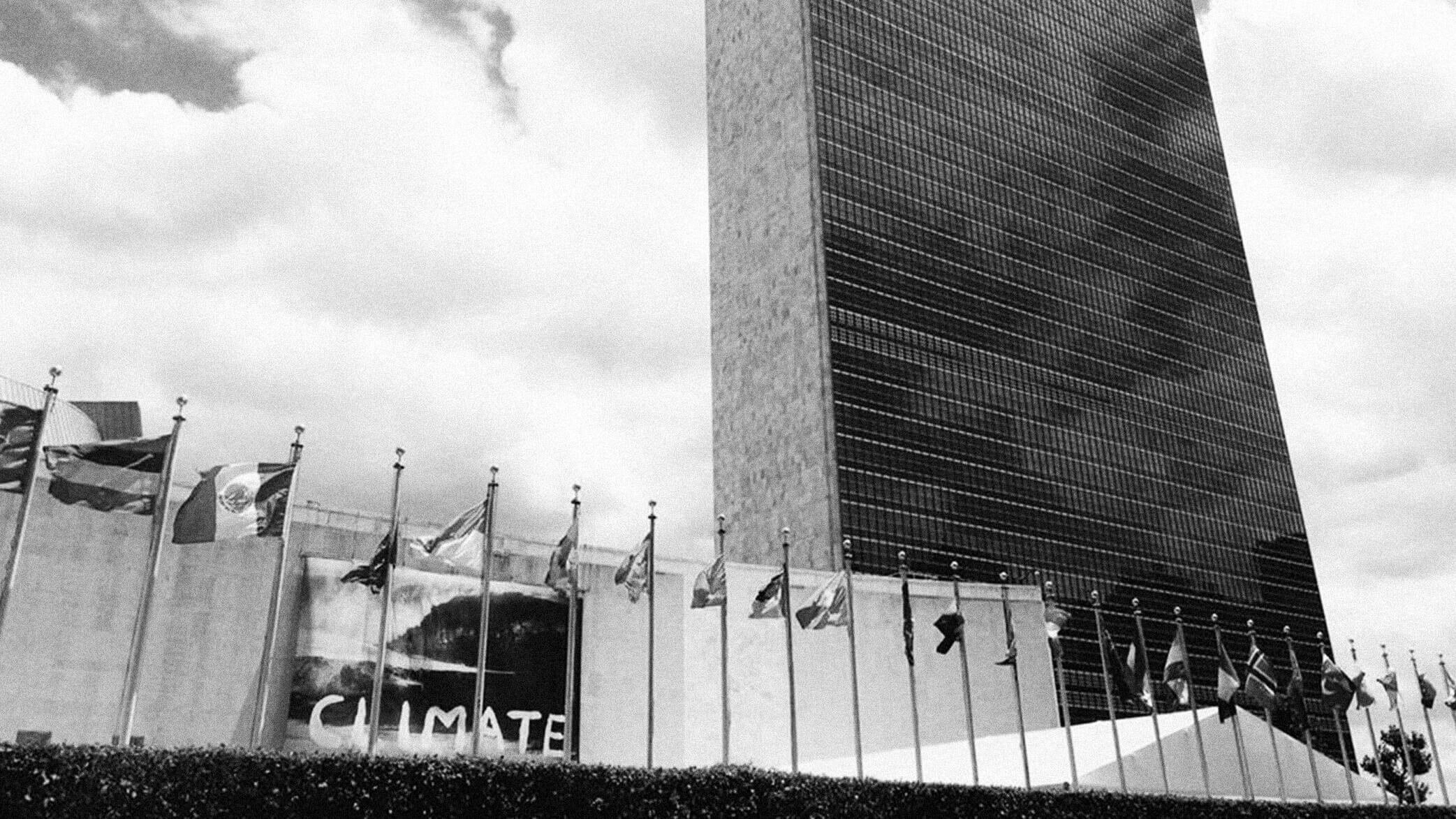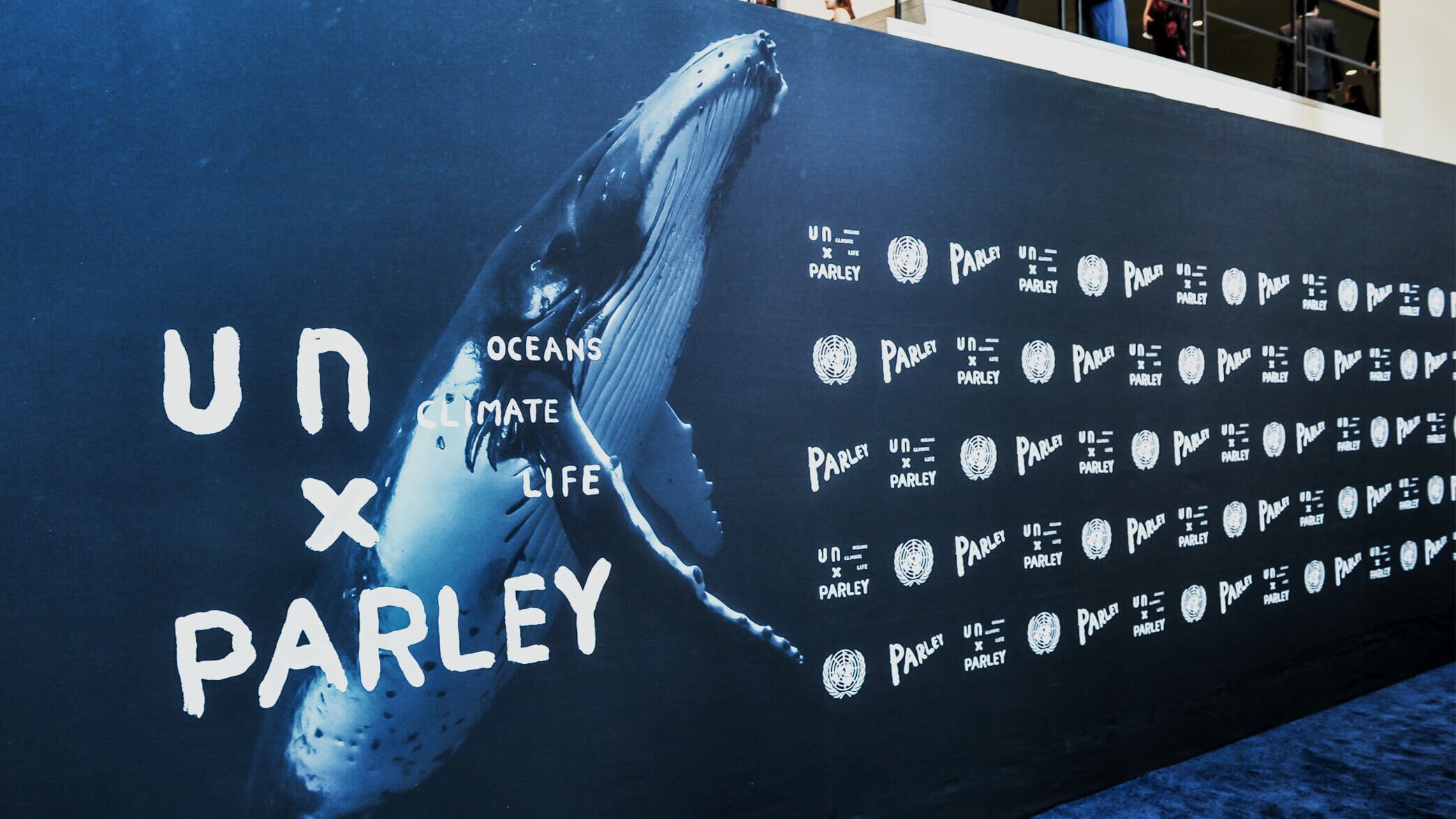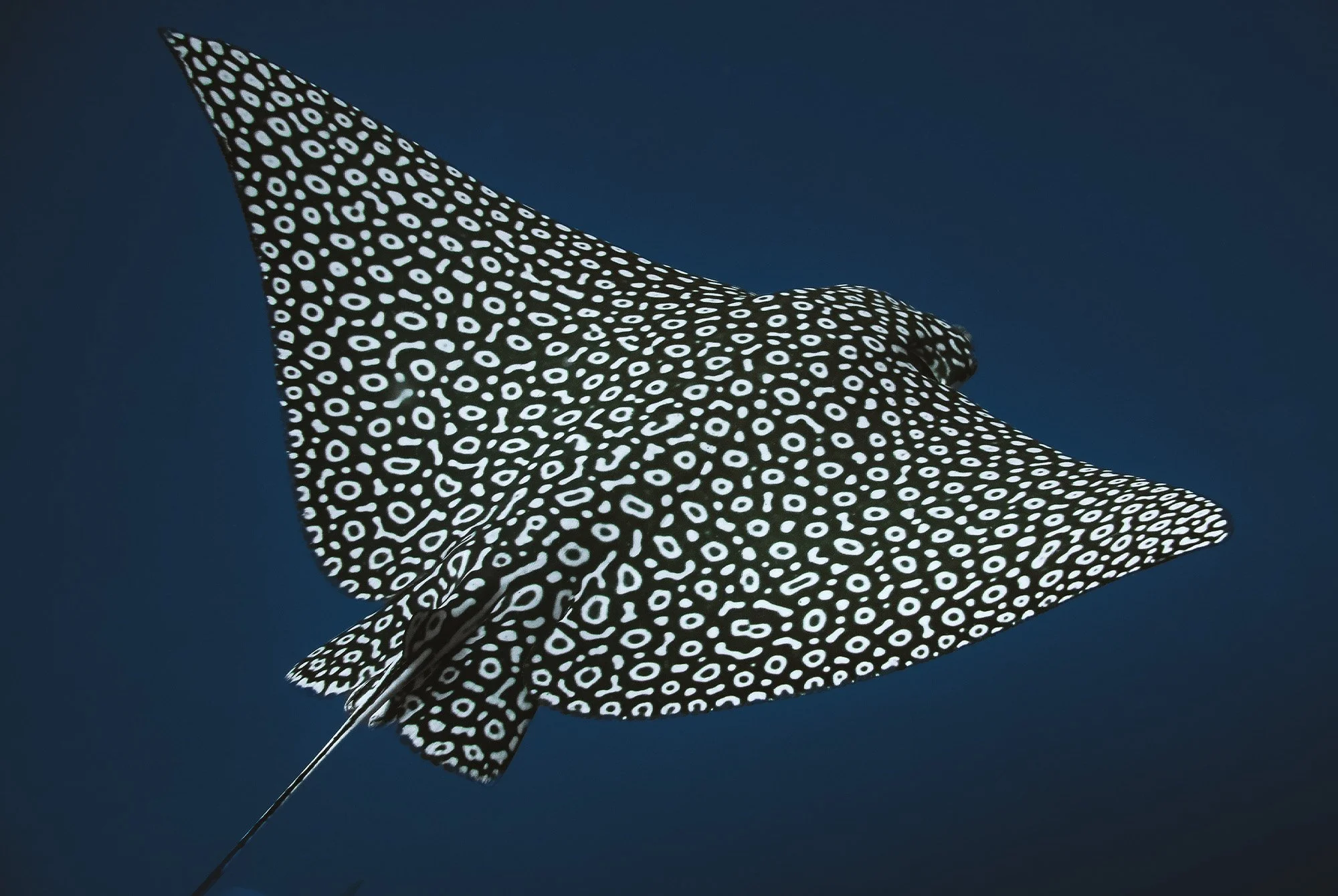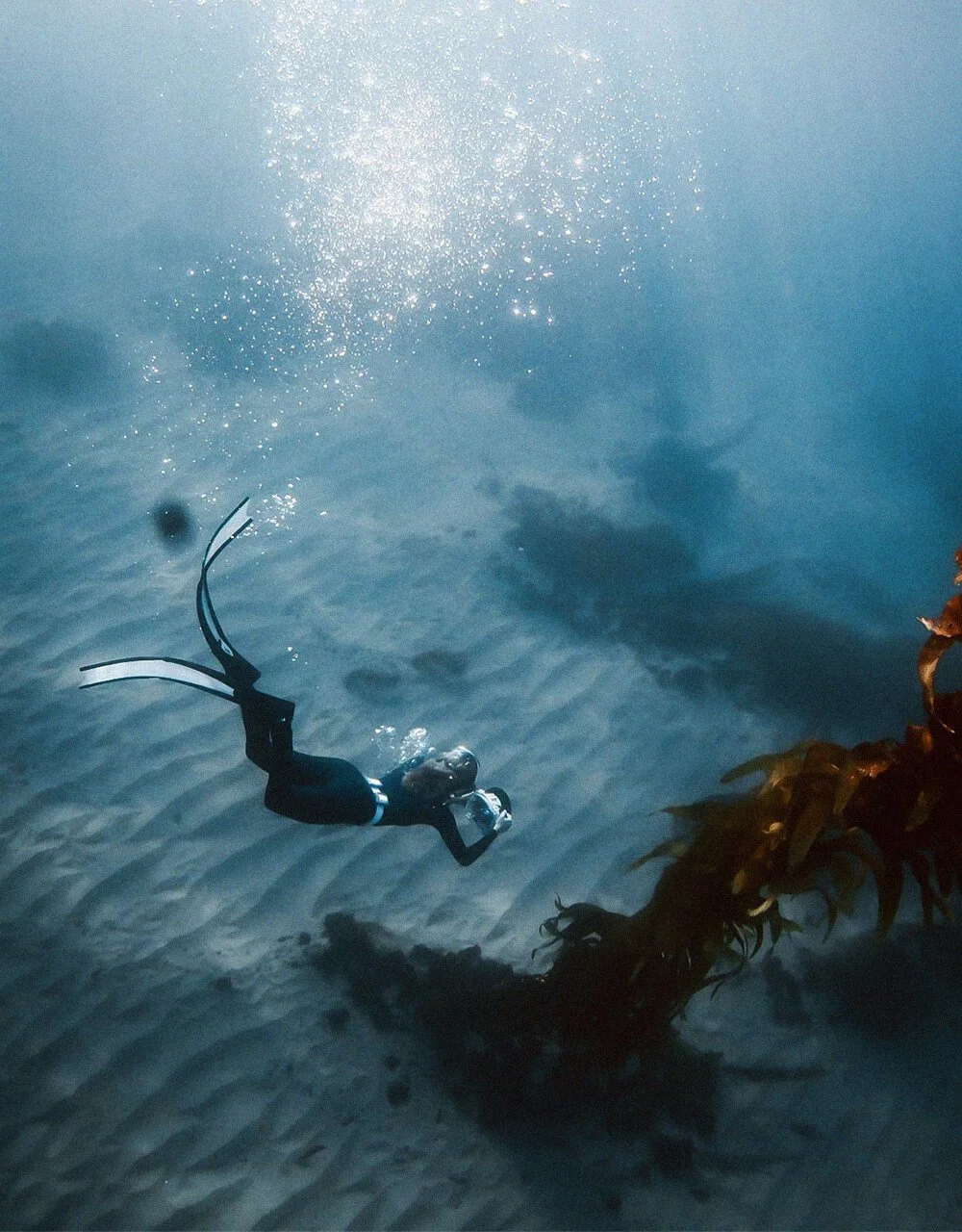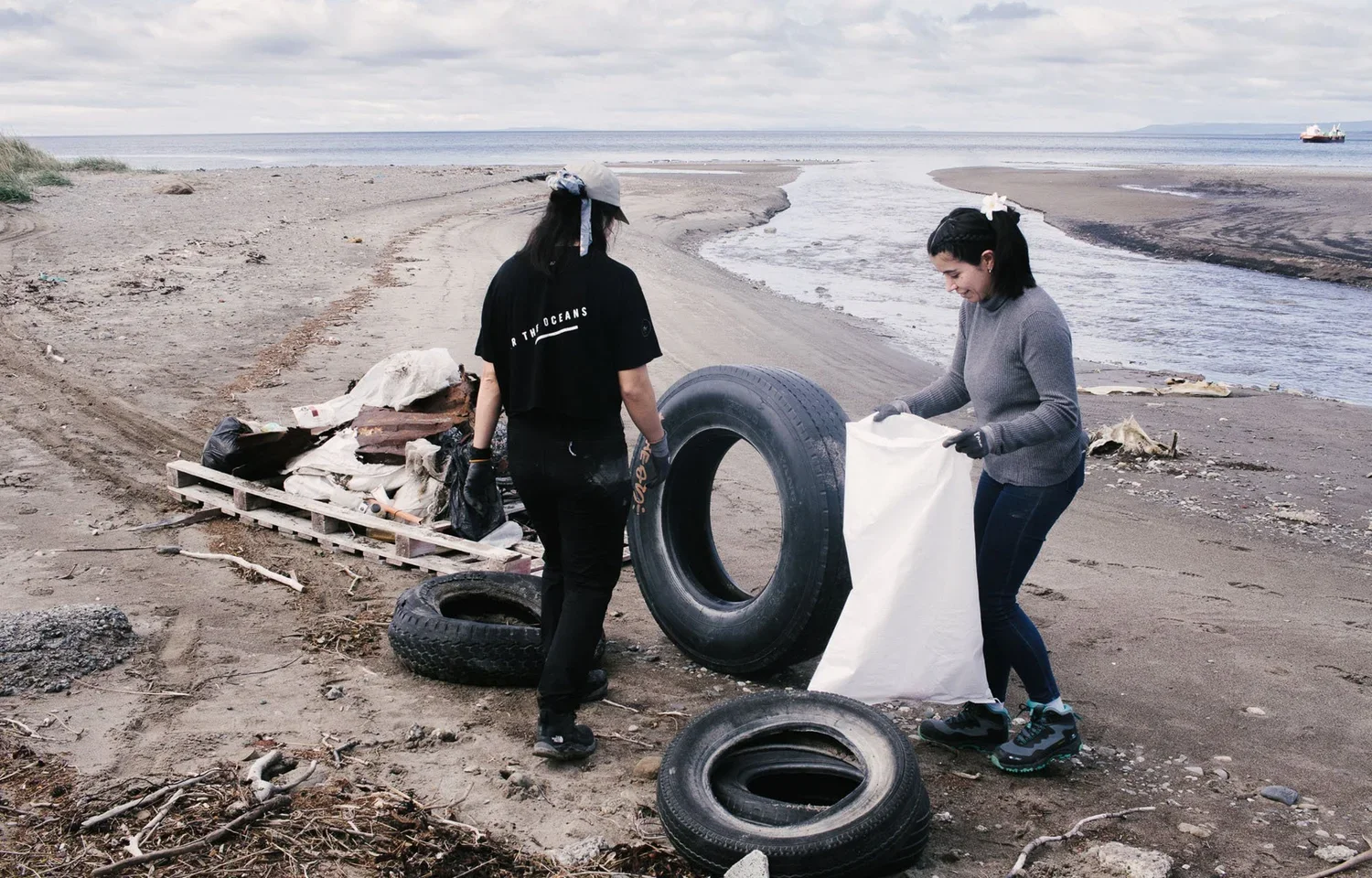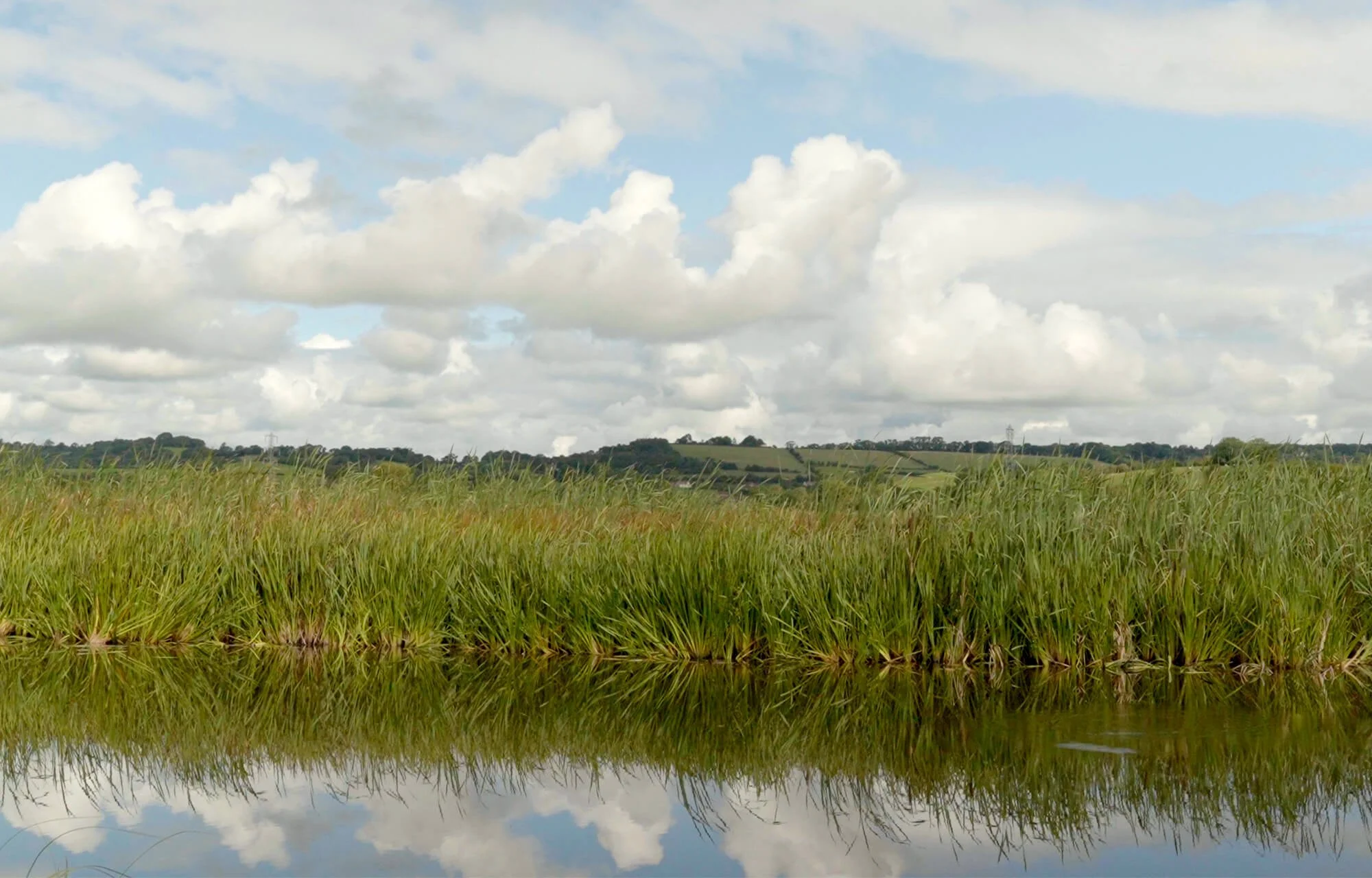ARTIST OCEAN BAGS: JULIAN SCHNABEL x PARLEY
EACH artist series Parley Ocean Bag SOLD
removes 20 pounds of marine plastic debris
Internationally acclaimed artist, filmmaker and Parley collaborator Julian Schnabel has dedicated his talents to the cause with another series of artworks. This time, he contributes his famous surf paintings to a series of limited edition Parley Ocean Bags made from Ocean Plastic® and supporting the efforts of our Global Cleanup Network. Every artist bag helps us remove another 20 pounds of plastic debris from marine environments.
Julian’s connection to Parley goes back to our very beginning. In addition to creating our logo, Julian gave Parley our first home—his home—by hosting the first Parley Talks at his Palazzo Chupi in New York in February 2013.
The aim of the discussions at that inaugural Parley event was to brainstorm how the creative industries could lend support to and cooperate with leading ocean sentinels, like Captain Paul Watson, working on the front lines to create change. On his decision to host the first Parley, Julian explained, “I have been surfing since I was a teenager… The ocean, the sea, and the waves have had a big influence on my life. When the ocean dies, the world will die along with it. I can do my part by bringing together some influential people and helping lay the groundwork for meaningful, constructive partnerships to preserve the environment.”
“The ocean, the sea, and the waves have had a big influence on my life. It is so important that people finally comprehend that there is something bigger than them. The ocean teaches us to be humble, to respect it, and to accept that we are all part of something greater.”
Julian Schnabel
Julian Schnabel painting in his studio, New York, NY. Photo by Dennis Hopper, 2008
Julian’s surf paintings have also appeared in support of the UN x Parley collaboration. For our launch event on June 29, 2015, he created a series of large-scale artworks bearing the event’s title — Oceans. Climate. Life. — painted over classic images of surfers negotiating waves. The series highlights the beauty and power of the oceans, as well as the fragility of those who try to navigate them. These large scale artworks helped transform the facade of the United Nations Headquarters in New York, bringing our message and movement to the forefront of crucial climate change negotiations.
Julian’s work invites the viewer to reflect on his/her place in nature, to appreciate the lifeblood that allows for our existence. When you walk into a museum or a studio, you step out of your own being. You open yourself to a shift in perspective. And when you walk away from a work of art, you are transformed. Art can transcend barriers of language and culture. Art, and the artist, are therefore the perfect messengers for change. Collaborating with artists to create Parley Ocean Bags brings this invitation to reflect to a solution, putting our movement directly into the hands of individuals.
Other artists in the Ocean Bag series include Doug Aitken, Walton Ford, Jenny Holzer, Pipilotti Rist, Ed Ruscha and Rosemarie Trockel.
‘Surf Paintings’
Painting for Malik Joyeux and Bernardo Bertolucci (Surfer)—inkjet print, gesso, ink on polyester, 180 x 240", 2006
Painting for Malik Joyeux and Bernardo Bertolucci (Surfer)—inkjet print, gesso, ink on polyester, 180 x 240", 2006
Painting for Malik Joyeux and Bernardo Bertolucci (Surfer)—inkjet print, gesso, ink on polyester, 180 x 240", 2006
Untitled (Surfer)—inkjet print, gesso, ink on polyester, 88 x 131", 2008
Untitled (Surfer)—inkjet print, gesso on polyester, 88 x 135", 2008
Untitled (Surfer)—inkjet print, gesso, ink on polyester, 88 x 135", 2008
Painting for Malik Joyeux and Bernardo Bertolucci (Surfer)—inkjet print, gesso, ink on polyester, 240 x 180", 2006
Painting for Malik Joyeux and Bernardo Bertolucci (Surfer)—inkjet print, gesso, ink on polyester, 240 x 180", 2006
Painting for Malik Joyeux and Bernardo Bertolucci (Surfer)—inkjet print, gesso, ink on polyester, 240 x 180", 2006
Q&A
Parley founder Cyrill Gutsch sat down with Julian ahead of his hosting the first Parley in 2013
How do you feel about meeting Captain Paul Watson and hosting these Parley talks and discussions at your home?
I think if I’m going to be effectual in some way, the more information I have, the better off things will be. I guess it’s very important to change the perspective of how people view Paul, but to me, it’s just one person doing what he can to protect everybody else and putting himself in harm’s way in order to do it, and obviously with litigation, governments, and commerce in the way; the powers that crush individuals.
It’s one individual and he’s had the charisma and energy to gather people of similar minds to work with him… I’m just trying to be a conduit in some way and connect some dots, and maybe something constructive can come out of it. I really don’t know what, but I guess we all do what we can.
The oceans and you… you have a very strong relationship to the sea, right?
Yes, I do. I’ve been surfing since I was a teenager and I’m 61 years old now. I don’t spend as much time in the water as I’d like to anymore, but the ocean, the sea, and the waves have a huge impact on my life… the sea is the antigravity machine that keeps me alive.
Why are the oceans important?
It’s important for people to know that there’s something out there that’s bigger than they are. You learn humility, you learn respect for the ocean, you learn how to submit to that and be a part of that bigger thing, and it’s very generative, and life-generating. The concept of the sea dying, the fish dying, not being able to live off the sea or with the sea is a world that is non-existent.
There are people who live near the sea and those who live far from it that probably don’t know the same truths about it. To me and my family and my circle of friends, the sea is engraved into our consciousness. It’s also a huge part of my paintings. The time I’ve spent in the water, there are people who do yoga or do different forms of meditation or make art, but there is a quality of being that comes with immersion in the sea, and having to do with water, that is something that is beyond consciousness or another kind of consciousness, and it opens you up to the essence of being.
How do you feel knowing the oceans are in trouble?
We’re all here trying to figure out why we’re here and what life is really about, and the sea has had an effect on people since the beginning of time. It’s hard to imagine that that could actually come to an end. The thought of that seems very radical because it’s always been there, but Paul Watson probably knows something that a lot of people don’t know — so we’re trying to get people together to use whatever intelligence they have to save this planet instead of just use it up. There’s a lot of imbalance that has occurred and Paul is certainly doing something actively everyday — and i’m just a painter.
ABOUT JULIAN SCHNABEL
Julian Schnabel was born in New York City in 1951. Early artworks included his acclaimed Plate Paintings, which featured in Schnabel’s first solo painting exhibition in 1979. His work is now included in the public collections of institutions including MoMA, the Guggenheim, the Whitney, MOCA in Los Angeles and Tate Gallery in London, among many others. In 1996 Schnabel wrote and directed his first feature film, a critically-acclaimed biopic of fellow New York artist Jean-Michel Basquiat. His 2007 film, The Diving Bell and the Butterfly, was nominated for four Oscars. Schnabel shares our love for the planet’s fragile oceans, and has been a collaborator and supporter of Parley from the very beginning. The artwork featured is part of his seminal Surf Paintings series, capturing humanity’s deep connection to the waves as a place to play and protect.




